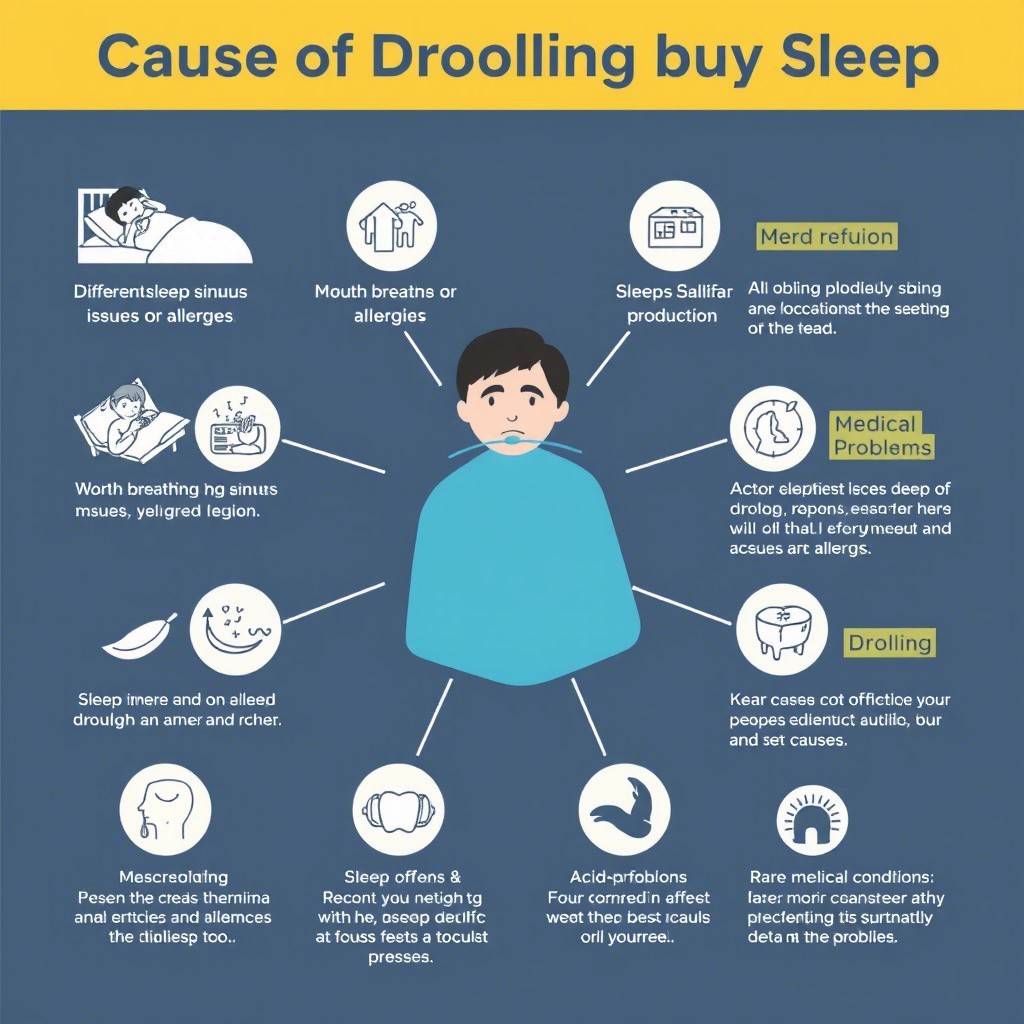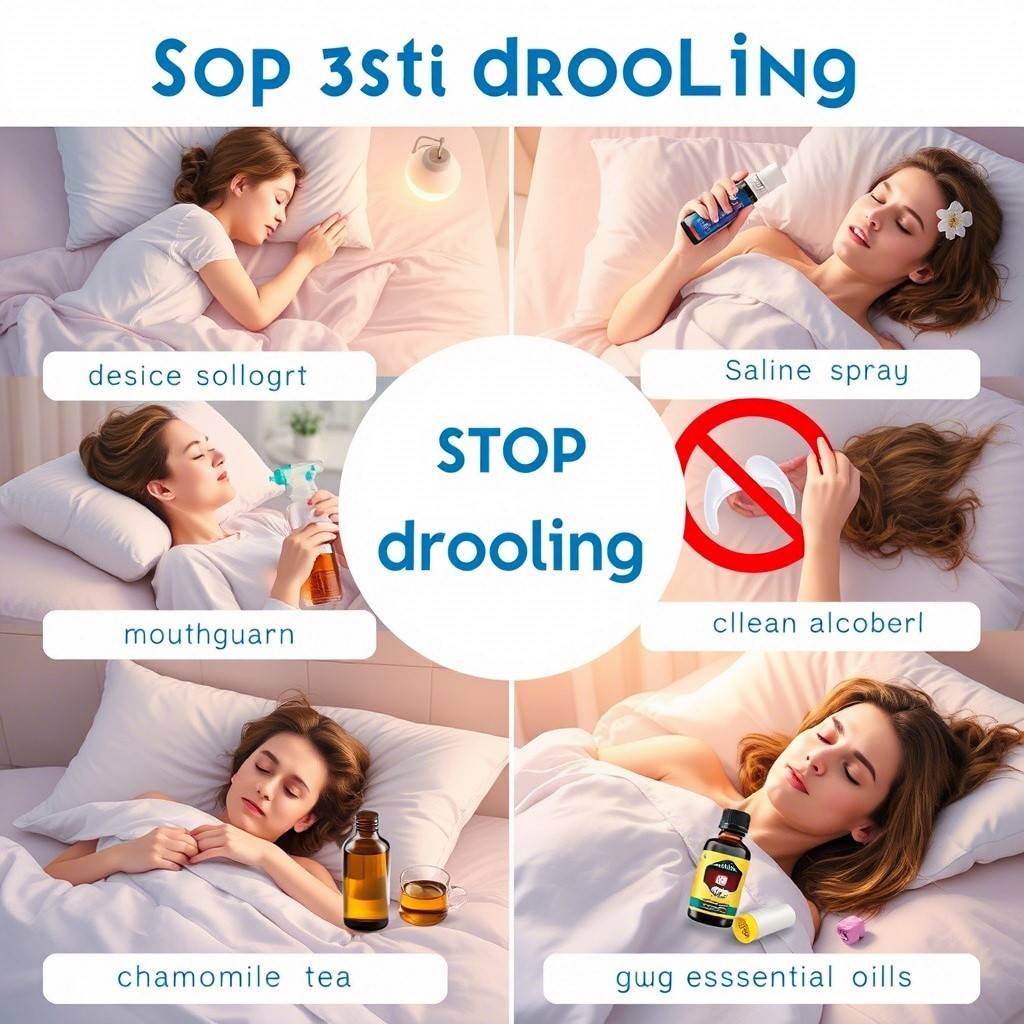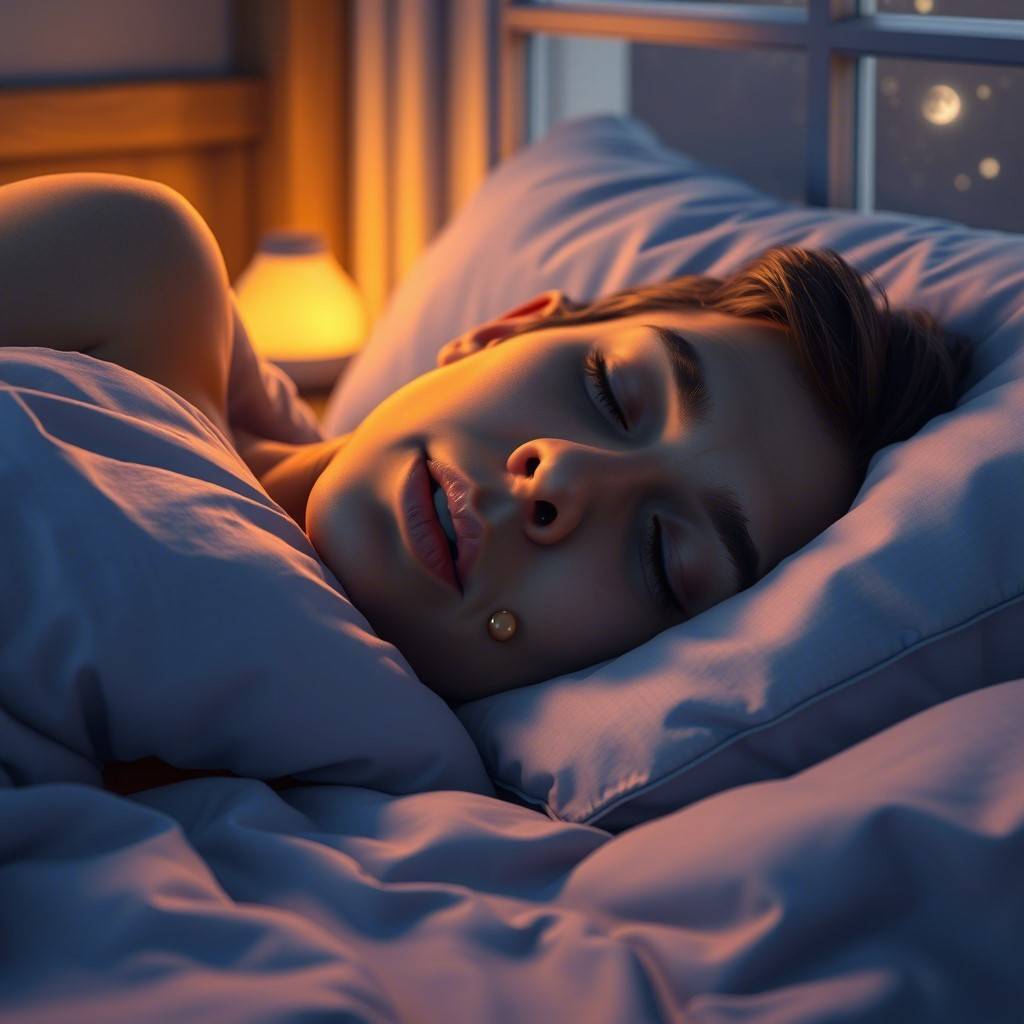Discover the surprising causes of drooling in sleep and simple solutions to stop it. Learn how to wake up dry and refreshed—find out now!
Have you ever woken up to a damp pillow? If so, you’re not alone. Drooling in sleep is something many people experience at some point in their lives. While it’s usually harmless, it can sometimes feel embarrassing. But what causes this nighttime dribble, and how can you stop it?
In this article, we’ll dive deep into the surprising reasons behind drooling in sleep, explore remedies for nighttime drooling, and share tips on how to prevent it. I’ve personally seen people struggle with this issue, and I like helping them find solutions that work. So, let’s get started!
What Is Drooling in Sleep?
It happens when saliva leaks out of your mouth while you’re asleep. It’s also called “sleep drooling” or “nocturnal hypersalivation.” While it’s more common in children, adults can experience it too.
Is drooling in sleep normal?
Yes, it’s usually nothing to worry about. However, if it happens often or is accompanied by other symptoms, it could signal an underlying issue.
Causes of Drooling While Sleeping

There are several reasons why people drool during sleep. Let’s break down the most common ones.
1. Sleep Position and Drooling
Your sleeping position plays a big role in whether you drool. Sleeping on your side or stomach makes it easier for saliva to escape from your mouth.
Gravity pulls the saliva downward, leading to drooling. On the other hand, sleeping on your back reduces the chances of drooling because your mouth stays closed more naturally. I’ve tested different pillows and found that using one designed to encourage back sleeping can make a vast difference.
2. Mouth Breathing While Sleeping
If you breathe through your mouth instead of your nose while sleeping, you’re more likely to drool.
Mouth breathing can happen because of sinus issues, allergies, or a deviated septum. When your mouth is open, saliva can easily spill out.
3. Excessive Saliva Production
Some people naturally produce more saliva than others. This is called excessive saliva production. Certain foods, medications, or even stress can boost saliva production, leading to excessive drooling at night.
4. Sleep Apnea and Drooling
Sleep apnea is a disorder characterized by intermittent pauses and resumptions of breathing during sleep. People with this condition often breathe through their mouths, which can cause drooling. If you snore loudly or wake up gasping for air, it might be worth getting checked for sleep apnea.
5. Acid Reflux and Drooling
Did you know that acid reflux can also cause drooling? When stomach acid flows back into your esophagus, it can irritate your throat and increase saliva production. This extra saliva can lead to drooling during sleep.
6. Dental Problems Causing Drooling
Sometimes, dental issues like misaligned teeth or gum disease can contribute to drooling. These problems can affect how your mouth closes, making it harder to keep saliva in.
7. Medical Conditions Causing Drooling
In rare cases, drooling in sleep can be linked to medical conditions like Parkinson’s disease or cerebral palsy. These conditions affect muscle control, making it harder to keep your mouth closed while sleeping.
How to Stop Drooling in Sleep: Simple Solutions

Now that we know the causes, let’s talk about solutions. Here are some simple and effective ways to stop it.
1. Change Your Sleep Position
As mentioned earlier, sleeping on your back can help reduce drooling. If you find it hard to stay on your back, try using a special pillow designed to encourage back sleeping.
2. Treat Sinus Issues and Allergies
If you’re a mouth breather because of sinus issues or allergies, treating these problems can help. Use a saline spray, take allergy medication, or use a humidifier to keep your nasal passages clear.
3. Practice Good Oral Health
Keeping your mouth clean and healthy can reduce excess saliva production. Clean your teeth twice daily, floss often, and schedule regular dentist appointments. A clean mouth is less likely to produce excessive saliva.
4. Avoid Alcohol and Sedatives
Alcohol and sedatives can relax the muscles in your face and throat, increasing the chances of drooling. Try cutting back on these substances, especially before bedtime.
5. Use a Mouthguard
A mouth guard can help keep your mouth closed while you sleep. These devices are often used to prevent teeth grinding, but they can also reduce drooling by keeping your jaw aligned.
6. Try Home Remedies for Drooling at Night
Here are some home remedies for drooling at night that I’ve seen work well:
- Drink chamomile tea before bed to relax your muscles.
- Chew sugar-free gum during the day to regulate saliva production.
- Use essential oils like peppermint to soothe your throat and reduce saliva buildup.
Is Drooling in Sleep Normal?
Yes, it is usually normal and nothing to worry about. However, if it happens, frequently or is accompanied by other symptoms like snoring, difficulty swallowing, or muscle weakness, it could indicate an underlying issue.
When Should You Be Concerned About Drooling?
You should seek medical advice if:
- You experience excessive drooling at night every night.
- You have trouble swallowing or notice muscle weakness.
- You snore loudly or wake up gasping for air (signs of sleep apnea).
What are the most effective treatments for drooling in sleep?
The most effective treatments for drooling in sleep include:
- Changing sleep position: Sleeping on your back can help control saliva flow and reduce drooling.
- Elevating the head: Using an extra pillow to prop up your head can prevent saliva pooling in your mouth.
- Treating allergies and sinus issues: Addressing nasal congestion can reduce mouth breathing and drooling.
- Using a CPAP machine: For those with sleep apnea, a CPAP machine can help position you safely and improve breathing.
- Considering medication: Doctors may prescribe medications like scopolamine or glycopyrrolate to reduce saliva production in severe cases.
- Botox injections: Injecting Botox into salivary glands can temporarily reduce saliva production for several months.
- Wearing a mandibular device: These appliances can help keep lips closed and reduce drooling while sleeping.
- Speech therapy: This can improve jaw stability and tongue strength, reducing drooling.
- Staying hydrated: Proper hydration can help regulate saliva production.
- Salivary gland ablation: In severe cases, interventional procedures to shrink salivary glands may be considered
It’s important to consult a healthcare professional to determine the most appropriate treatment based on the underlying cause and severity of drooling.
FAQs About Drooling in Sleep
What does it signify when you drool while sleeping?
It usually means that saliva has leaked out of your mouth while you were asleep. Common causes include sleeping position, mouth breathing, and excessive saliva production.
Does stress cause drooling in sleep?
Stress can indirectly cause drooling by increasing saliva production or affecting your sleep quality. However, it’s not a direct cause of nighttime drooling.
What does “dribble” mean in sleep?
“Dribble” is another word for drooling. It refers to saliva leaking out of your mouth while you sleep.
Conclusion
Drooling in sleep is a common and usually harmless occurrence. By understanding its causes and trying simple solutions, you can reduce or eliminate this nighttime nuisance. Whether it’s changing your sleeping posture, treating sinus issues, or consulting a doctor, there are plenty of ways to wake up dry and comfortable.
Remember, if you’re ever concerned about your drooling or if it’s affecting your quality of life, don’t hesitate to seek professional advice. With the right approach, you can enjoy peaceful, drool-free nights and wake up feeling refreshed every morning.
Final Notes
By following these tips and staying informed, you can tackle drooling in sleep head-on. Sweet dreams!

Adel Galal is a health and wellness writer with over 30 years of experience studying and writing about health, fitness, nutrition, and healthy living. He is the founder of NextFitLife.com, where he shares practical, evidence-based guidance to support long-term health at any age. Adel’s mission is simple:
to help people make smarter health choices that fit real life, at any age.



